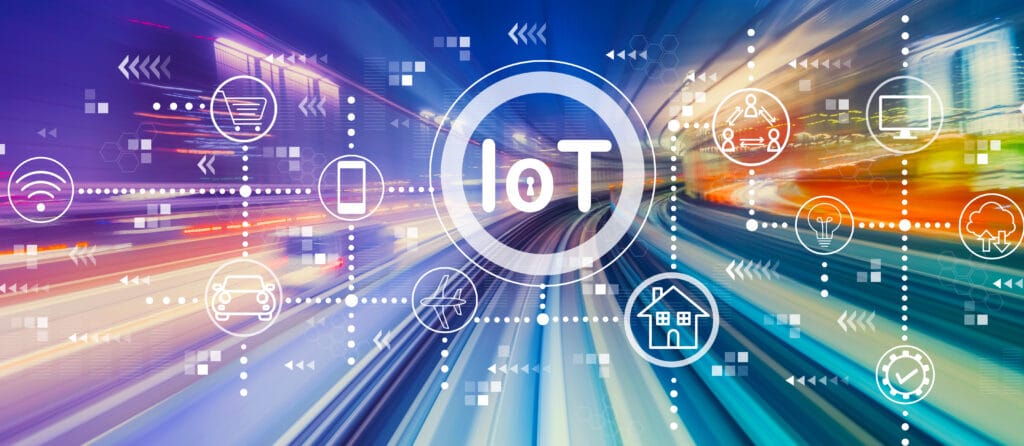The Internet of Things (IoT) is reshaping industries by enabling smarter operations and real-time insights. As businesses integrate IoT into their workflows, they face challenges in managing large-scale deployments, ensuring reliability, and securing vast networks of connected devices.
Without the right expertise, organizations risk inefficiencies, security vulnerabilities, and increased operational costs. IoT managed services provide the necessary support, allowing businesses to focus on innovation while ensuring seamless connectivity and performance.
Read on to explore how IoT managed services drive efficiency and give industries a competitive edge.
1. Healthcare
Delivering quality patient care while optimizing resources is a priority for healthcare providers. IoT healthcare solutions enhance patient monitoring, streamline operations, and improve medical research.
Below are ways hospitals, clinics, and research institutions benefit from these technologies:
- Remote patient monitoring: IoT devices such as smart wearables continuously track vital signs like heart rate, oxygen levels, and blood pressure. These real-time updates allow doctors to detect health issues early, reducing hospital admissions and improving patient outcomes.
- Smart medical equipment: Connected devices help hospitals monitor medical assets, such as infusion pumps and ventilators, ensuring they are available when needed. This reduces equipment loss and enables proactive maintenance.
- Cold chain monitoring: Sensitive medications and vaccines require strict temperature control. A cold chain monitoring solution tracks temperature fluctuations during storage and transportation, preventing spoilage and ensuring patient safety.
- Improved clinical trials: Clinical trial solutions enhance data collection accuracy, accelerating drug development and improving research reliability. These systems also enable remote monitoring of participants, reducing the need for frequent site visits.
Handling vast amounts of healthcare data requires secure connectivity and seamless device management. IoT managed services help healthcare organizations maintain compliance, protect patient data, and efficiently manage their expanding network of IoT deployments.
Also Read
2. Manufacturing
Manufacturers rely on precision and efficiency to maintain production quality while minimizing costs. IoT deployments play a key role in automating processes, improving decision-making, and ensuring seamless operations.
Below are essential ways IoT is transforming manufacturing:
- Predictive maintenance: Sensors monitor device performance and detect irregularities in machinery before they lead to failures. This reduces unexpected downtime, lowers repair costs, and extends equipment lifespan.
- Smart supply chains: IoT connectivity services enable real-time tracking of raw materials and finished products. This improves logistics, reduces bottlenecks, and enhances overall supply chain efficiency.
- Quality control automation: Artificial intelligence analyzes production data to identify defects early in the manufacturing process. This ensures consistent product quality and reduces material waste.
- Energy management: Factories use IoT solution platforms to monitor energy consumption in real time. By optimizing energy use, manufacturers can reduce operational costs without compromising production output.
- Secure connectivity: Managing industrial IoT networks requires Managed IoT Connectivity Services to ensure secure connectivity, streamline device management, and maintain reliable data transmission.
Manufacturers that integrate IoT devices into their operations gain actionable insights to improve efficiency, reduce waste, and drive long-term cost savings.
3. Transportation and Logistics
Efficient transportation and logistics operations depend on real-time tracking, predictive maintenance, and seamless connectivity. IoT connectivity services provide businesses with the data and tools needed to enhance fleet management, reduce operational costs, and improve supply chain efficiency.
To improve performance and reliability, the following are IoT deployments transforming the logistics sector:
- Fleet tracking and optimization: IoT devices with GPS and telematics track vehicle locations, monitor fuel consumption, and analyze driver behavior. This data helps businesses optimize routes, reduce fuel costs, and improve delivery times.
- Asset monitoring: Managed IoT services for asset and logistic solutions provide real-time tracking of high-value shipments, ensuring security and minimizing loss or theft. These IoT connectivity services help logistics providers maintain supply chain visibility and respond quickly to disruptions.
- Cold chain logistics: Temperature-sensitive goods like vaccines, perishable food, and pharmaceuticals require strict environmental controls. Cold chain monitoring solutions use connected devices to monitor temperature and humidity levels, preventing spoilage and maintaining product integrity.
- Predictive maintenance for vehicles: Artificial intelligence analyzes vehicle performance data, allowing fleet managers to detect mechanical issues before failures occur. This reduces unexpected breakdowns, lowers maintenance costs, and extends vehicle lifespan.
Integrating managed IoT connectivity services helps logistics providers gain actionable insights into their operations. It also allows them to optimize resources and improve efficiency in supply chain management.
4. Smart Cities
Urban centers are leveraging IoT connectivity services to improve safety, optimize infrastructure, and enhance the quality of life for residents. To achieve these goals, cities are integrating IoT deployments across transportation, energy management, and public security systems.
Below are key applications transforming modern cities:
- Smart traffic management: Cities use IoT solution deployments to analyze traffic patterns in real time. Artificial intelligence helps adjust traffic signals dynamically, reducing congestion and improving road safety.
- Energy-efficient street lighting: Connected devices with secure connectivity enable remote control of streetlights, lowering energy consumption by adjusting brightness based on real-time conditions.
- Waste management optimization: IoT devices in smart bins detect fill levels and notify waste collection services when pickups are needed, reducing unnecessary collection trips and lowering costs.
- Public safety enhancements: Surveillance systems powered by network technology provide real-time monitoring, improving emergency response times and enhancing urban security.
These IoT deployments require managed IoT connectivity services for device management, secure connectivity, and seamless data integration. The right solution providers help municipalities improve efficiency and public services.
Final Thoughts
Industries are evolving rapidly, and IoT is at the heart of this transformation. Beyond automating tasks, IoT managed services empower businesses with data-driven decision-making and greater operational control. The ability to securely connect, monitor, and optimize processes in real time opens new possibilities for efficiency and innovation. As technology advances, companies that embrace these solutions will be better positioned to adapt and thrive.
